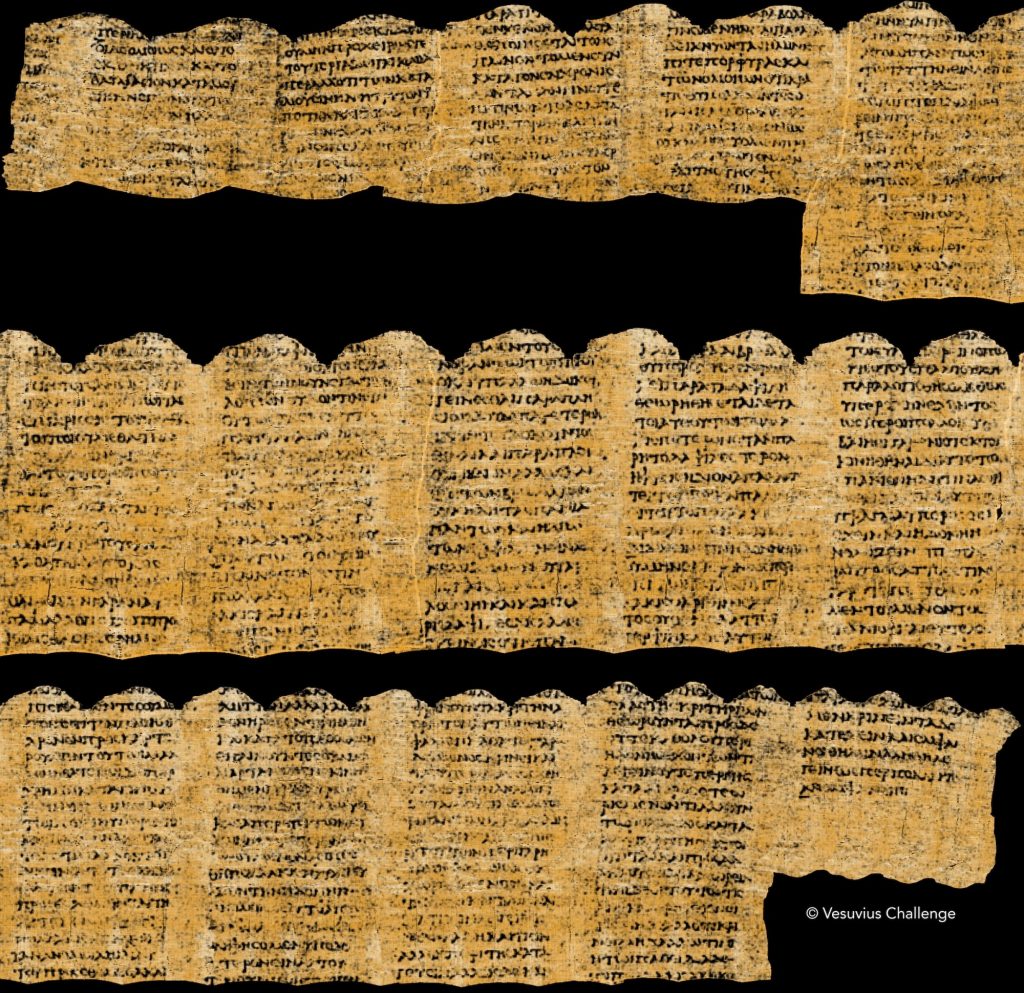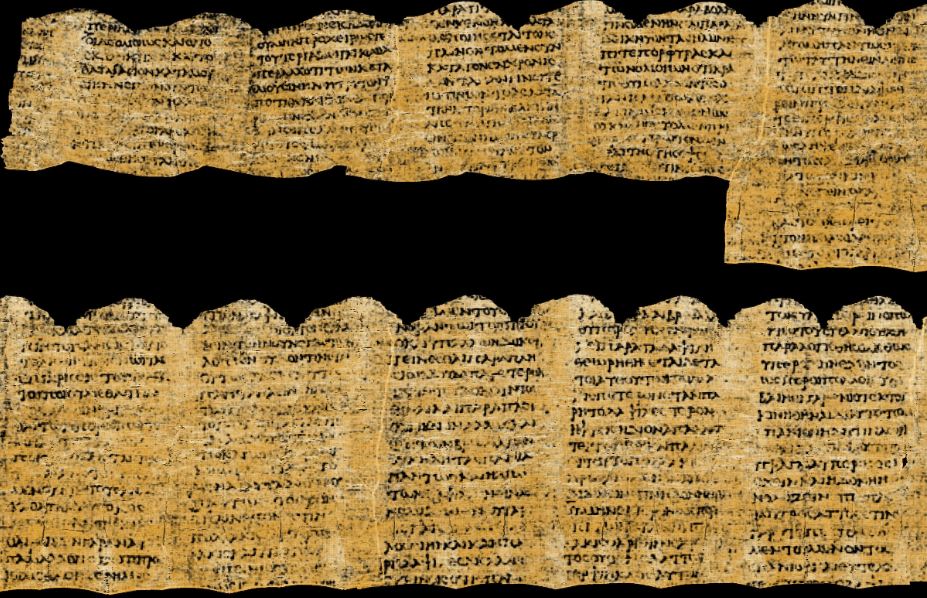A technological feat promising to resurrect a lost library of Greco-Roman antiquity stirred up excitement last week as artificial intelligence algorithms recovered texts from carbonized papyri from Herculaneum, a Roman city lost along with Pompeii following the eruption of Mount Vesuvius in 79 AD.
The endeavor brought to light fragments of a previously unknown work associated with the philosophy of Epicurus, with the prospect of restoring hundreds more texts in the future.
“This marks a historic turning point,” says Robert Fowler, honorary professor of Greek at the University of Bristol and member of the judging committee for the Vesuvius Challenge competition, an unusual collaboration between philologists and computer scientists to decrypt the papyri of Herculaneum.
Many have attempted to unravel the fragile charred papyri belonging to the unique ancient library that came to light in the 18th century in Herculaneum, with disastrous results most of the time. Federica Nicolardi, a papyrologist at the University of Federico II in Naples, actively engaged in the study of the ancient papyri says that the opportunity has finally arrived.
The Vesuvius Challenge competition was the brainchild of Brent Seales, a computer scientist at the University of Kentucky in Lexington, who for two decades, had fervently endeavored to decipher the enigmatic papyri.

The algorithms developed by Luke Farritor an American computer science student collaborating with Egyptian doctoral candidate Youssef Nader and Swiss robotics student Julian Schilliger won first prize; they managed to read hundreds of words from a work likely authored by Philodemus, a follower of the Athenian hedonistic philosopher Epicurus and possibly the curator of the Herculaneum library.

“The subject of the papyrus was pleasure, the most significant virtue in Epicurean philosophy,” explains Fowler. “The fact that the text references music, leads to the conclusion that it could be another volume from Philodemus’ book ‘On Music’,” he says.”
Approximately 600 charred scrolls await examination with the new approach to restore the lost wisdom of Herculaneum. “We know that Philodemus wrote the history of Philosophy,” emphasizes Fowler. “To do this, he would have needed the works of other philosophers in his library. It is therefore quite possible that even some unknown work of Aristotle may emerge!”




